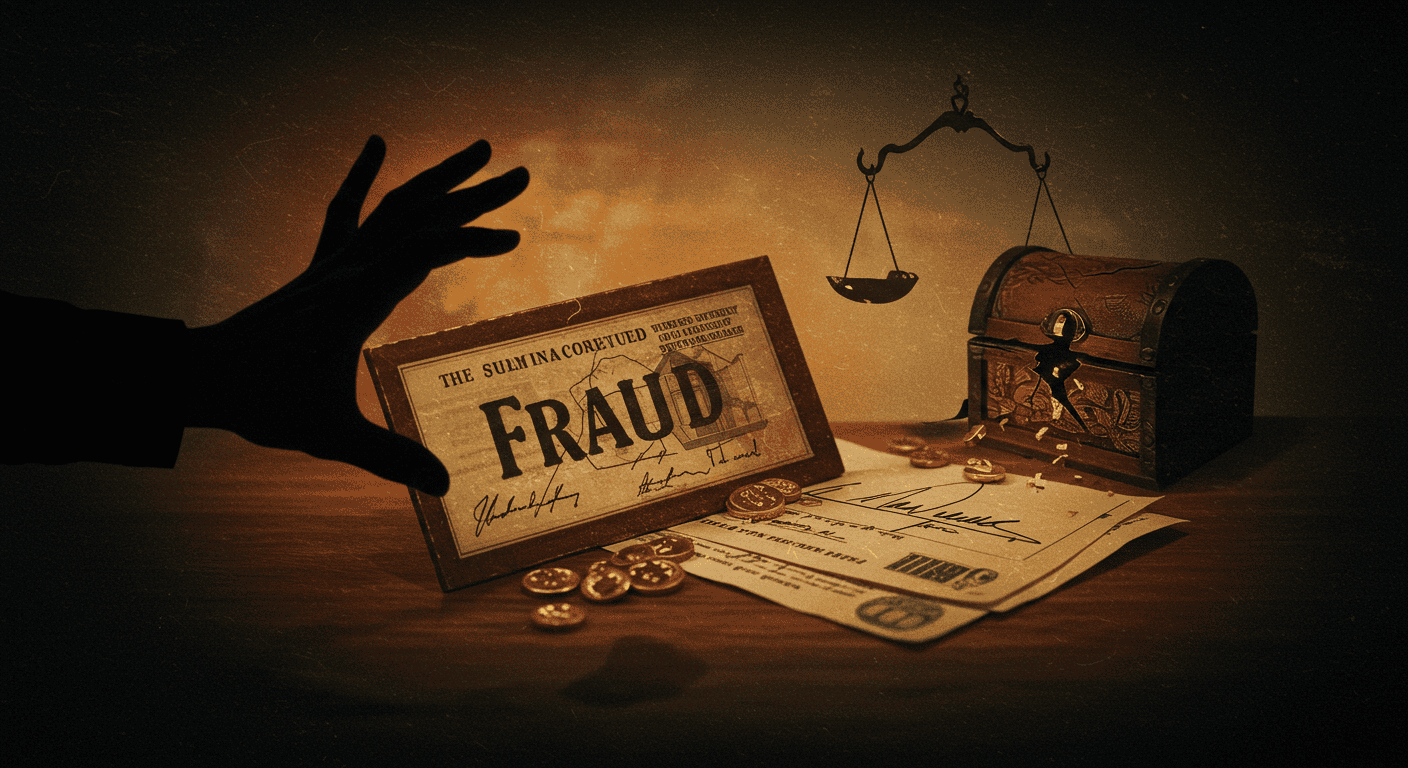Key Takeaways:
- South Dakota Codified Law protects rightful inheritors of estates and sets clear guidelines for trustees and executors.
- Estate or trust fraud is a crime punishable by law.
- Subtle warning signs of estate or trust fraud include unexplained changes to wills or trusts, disappearing assets, and unusual defensiveness over questions regarding the estate.
- You can contest a will or trust and take action against fraud with the help of a probate attorney in South Dakota.
If you believe that a loved one’s estate has been manipulated, you can take legal action. Trust or estate fraud happens to thousands of people every year. Many elderly people are misled or coerced by caregivers to change their wills, or they may even have their estate changed without their consent. In any case, the family and beneficiaries are the ones who suffer and face the task of proving this fraud in court.
With the help of an estate lawyer, you can pursue justice and ensure you receive any inheritance your loved one wants you to have. Alvine Law Firm is here to help. This post explores steps you can take if you suspect estate or trust fraud in South Dakota.
Disclaimer: This post is solely intended for educational purposes and does not constitute legal advice. Please consult with an attorney for professional counsel.
Understanding Estate and Trust Fraud: Key Terms and Definitions
It’s important to fully understand how the state of South Dakota defines estates and trusts, so you can defend your case and work together with an attorney if necessary.
Let’s begin with the most basic definition. What is a trust?
A trust is a special type of legal arrangement where a person — called a settlor, grantor, or trustor— arranges for someone else to protect their assets. This person is called a trustee. The trustee manages the assets in the trust for the benefit of the settlor and/or the people they want to receive their assets (beneficiaries) [1].
Below are some of the most essential terms related to estates and trusts you should know:
- Estate: All assets owned by a person at the time of their death, such as real estate, vehicles, bank accounts, investments, etc..
- Trust: A legal arrangement where a trustee holds assets for the benefit of beneficiaries.
- Fiduciary Duty: The legal obligation of an executor/administrator (of an estate) or a trustee to act in the best interests of the beneficiaries. This is central to understanding fraud.
Note that a trust is not the same as a will, but they can operate similarly. In a will, the person whose assets are being distributed is known as the testator, and the person who is responsible for distributing their assets is the executor.
Settlors/testators are the ones whose assets a testator/trustee may attempt to steal through fraud.
Common Types of Estate or Trust Fraud
- Misappropriation of Assets: Stealing or misusing funds/property.
- Self-Dealing: Trustee/executor benefiting personally from the estate/trust.
- Undue Influence: Coercing the settlor to change their will/trust.
- Fraudulent Accounting: Hiding assets or misrepresenting financial information.
- Forgery: Falsifying documents (wills, deeds, etc.).
- Breach of Fiduciary Duty: A catch-all for actions that violate the trustee/executor’s legal obligations.
What Are Warning Signs of Estate or Trust Fraud?
You may begin to notice suspicious behavior surrounding a loved one’s estate, such as sudden changes to their will or trust, the unexplained depletion of assets like bank accounts, and a lack of transparency from the trustee or executor.
Additional red flags of trust or estate fraud include:
- Sudden changes to estate planning documents, especially near the time of death or when the settlor/testator lacked the mental capacity to do so.
- Unexplained disinheritance of loved ones.
- Isolation from the testator or settlor from loved ones by the trustee or executor.
- Unusual financial transactions, such as large gifts to the trustee or untraceable “donations”
- Items of value or heirlooms disappearing with no explanation
- Conflicting explanations about financial matters
- The trustee or executor being unwilling to answer any questions; they may accuse others of attempting fraud
- Hostility or defensiveness from the trustee/executor when you ask about their handling of the estate/trust.
If you suspect fraud, you can take the estate to probate court. Probate allows you to contest the contents of a will or trust. South Dakota law outlines a clear scope of proceedings that will result in the estate being reviewed by a court to determine whether fraud has been committed; note that the statute of limitations to contest a will or trust can vary from one year to up to 20 years after the settlor’s death, so it is important to act quickly and understand your situation’s legal timeframe [2].
Trust your instincts. If you believe that a loved one may be the victim of estate or trust fraud, speak with one of our attorneys.Request a free consultation.
Gathering Evidence
You can build a case against a suspected fraudster by collecting evidence to support your claim. This can include copies of wills, trusts, or bank statements, property deeds and titles, etc. It’s best to do this without alerting the suspected party to prevent them from hiding or destroying potential evidence.
Ensure that any financial documents you acquire are only done so with permission. If you do not have the legal right to access someone’s financial records, then you cannot use them as evidence.
Keep documentation of letters, conversations, emails, and any other correspondence you had with the loved one. If the settlor/grantor previously expressed wishes that now conflict with their trust or estate plan, this is an important factor to bring up in court.
If you can, identify witnesses who can provide written statements or other evidence that supports the suspected fraud. Individuals who have observed or experienced strange or suspicious behavior from the trustee/executor can provide valuable testimony.
Be sure to also create a detailed timeline of the suspected fraud, including actions, dates, and observations, such as inexplicable adjustments to trusts, missing funds, changes to the loved one’s bank accounts, etc..
Keep all of your information organized in chronological order whenever possible, and speak with an attorney who can help you determine the next best course of action.
When to Seek Legal Help
Addressing trust/estate fraud by yourself can be emotionally draining and possibly result in the fraudulent party getting away with their actions. If you have any suspicion that your loved one’s estate or trust has been mishandled, speak with a lawyer.
An estate attorney can review any documents you have and offer personalized guidance on how to proceed. They can also represent you in court and build a strong case that supports your accusation of fraud.
Our attorneys have extensive experience in probate and trust litigation, and they will fight on the behalf of you and your family’s legacy to protect rightful inheritances. Please contact us at Alvine Law Firm in Sioux Falls, SD, to arrange a free consultation call at your earliest convenience.
Learn more about estate laws in South Dakota:
Prevent Family Feuds: Why a Clear Estate Plan is Essential
Combating Undue Influence: Protecting Your Inheritance Rights
Resolving Family Conflicts Over Wills and Trusts
Estate Planning Mistakes That Can Lead to Disputes in South Dakota
Sources:

